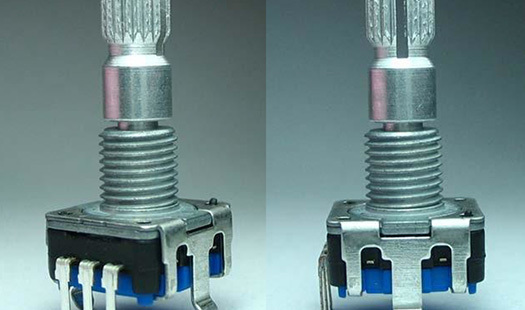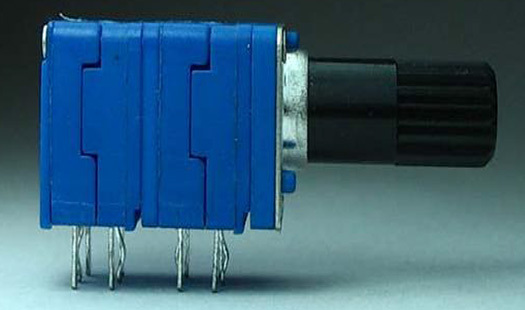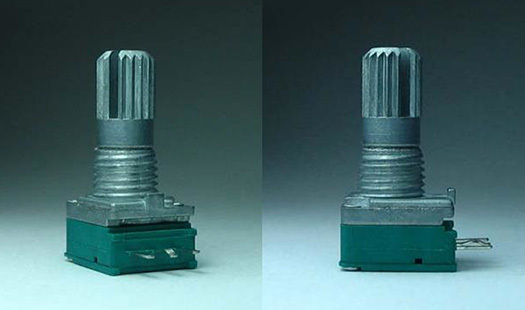Tuning In: The Essential Role of Trimmer Potentiometer Sensors in Modern Tech
Jun 23,2025
Introduction to Trimmer Potentiometer Sensors
When it comes to fine-tuning electronic devices, there's a little hero lurking behind the scenes: the Trimmer potentiometer sensor. These nifty gadgets are often unsung champions in the realm of electronics. They help adjust voltage levels, calibrate signals, and ensure smooth operation in a myriad of applications. But what exactly are they, and why should you care? Buckle up as we dive into the fascinating world of these tiny yet mighty sensors!
What is a Trimmer Potentiometer Sensor?
Simply put, a trimmer potentiometer sensor is a variable resistor that allows you to fine-tune the resistance in an electric circuit. Picture it as a volume knob on your favorite radio, giving you the ability to adjust how much sound you want to hear. In technical terms, it consists of a resistive element with a wiper that moves along the surface to change the resistance. Neat, right?
Why Use Trimmer Potentiometer Sensors?
Now, you might be wondering, "What's the big deal?" Well, these sensors play a crucial role in various devices, from audio equipment to medical instruments. They help in:
- Calibration: Ensuring devices operate accurately.
- Tuning: Adjusting specific parameters for optimal performance.
- Customization: Allowing users to set preferences in their gadgets.
Without them, many devices would be less functional or downright unusable. Talk about a game changer!
Types of Trimmer Potentiometer Sensors
There’s a wide variety of trimmer potentiometer sensors, each suited for different applications:
- Mechanical Trimmers: These require a screwdriver to adjust. They’re reliable but can be a bit of a hassle.
- Electronic Trimmers: These can be adjusted via a simple button or dial, making them super user-friendly.
- Digital Trimmers: The tech-savvy choice! These allow for precise adjustments through software, giving you the best of both worlds.
Each type has its own perks, depending on what you need. So whether you’re a DIY enthusiast or a professional engineer, there’s a trimmer potentiometer sensor for you!
Applications in Modern Technology
Trimmer potentiometer sensors are everywhere! Here’s a sneak peek into where you might find them:
- Audio Equipment: Fine-tuning sound levels in mixers and amplifiers.
- Telecommunications: Adjusting signal strengths for better clarity.
- Medical Devices: Calibrating instruments for precise measurements.
- Consumer Electronics: From TVs to game consoles, they help optimize user experience.
Can you believe how much these little components influence our daily lives? It’s wild!
The Future of Trimmer Potentiometer Sensors
As technology continues to evolve, so too will the trimmer potentiometer sensor. With the rise of smart devices and IoT (Internet of Things), the demand for precise and adaptable sensors is higher than ever. Expect to see:
- Increased Automation: Smart sensors that adjust automatically based on user preferences.
- Miniaturization: Smaller sensors fitting into even more compact devices.
- Integration with AI: Enhanced calibration and tuning through artificial intelligence algorithms.
In short, the sky's the limit! As we hop into an era of smart technology, trimmer potentiometer sensors are primed to take center stage.
Conclusion: A Small but Mighty Component
So there you have it! The trimmer potentiometer sensor may be small, but its impact on technology is monumental. Whether you’re tinkering in your garage or developing the next big tech innovation, these sensors are your trusty sidekicks. They help engineers and hobbyists alike create better, more efficient devices. Next time you turn up the volume on your radio or adjust the brightness on your screen, remember that there's a tiny trimmer potentiometer sensor working tirelessly behind the scenes. Cheers to that!
PREVIOUS:
More Information
More Information
RECOMMENDED










